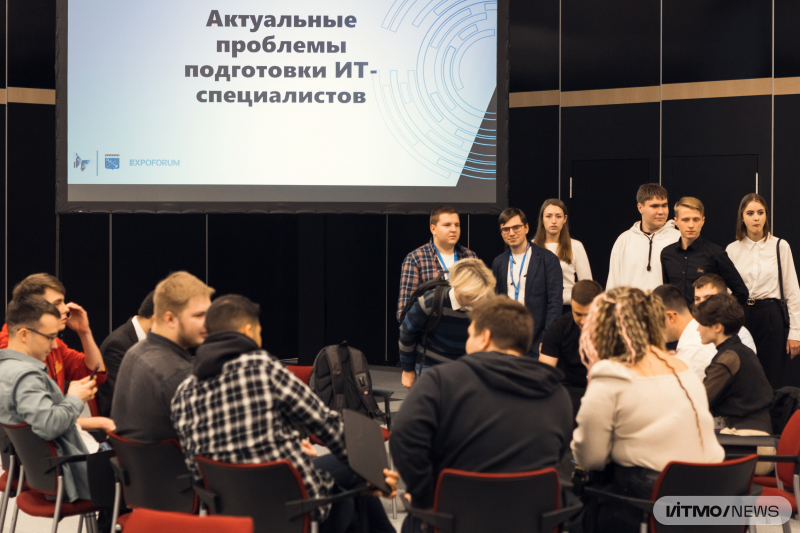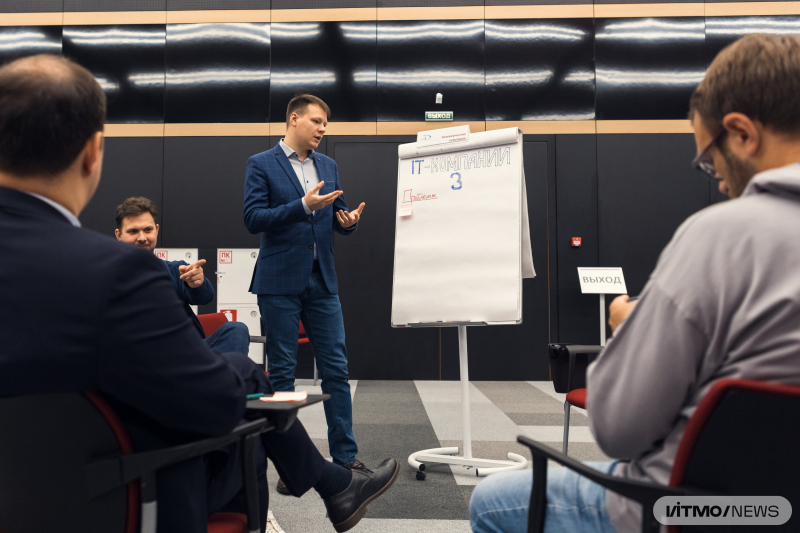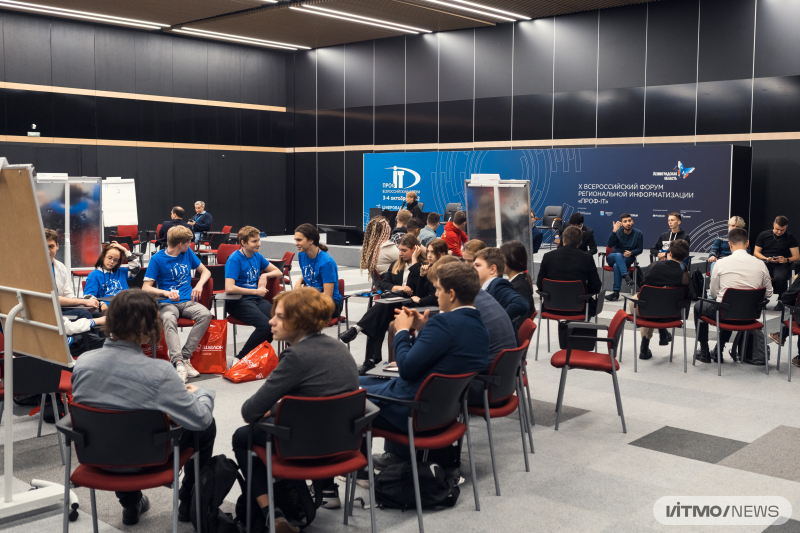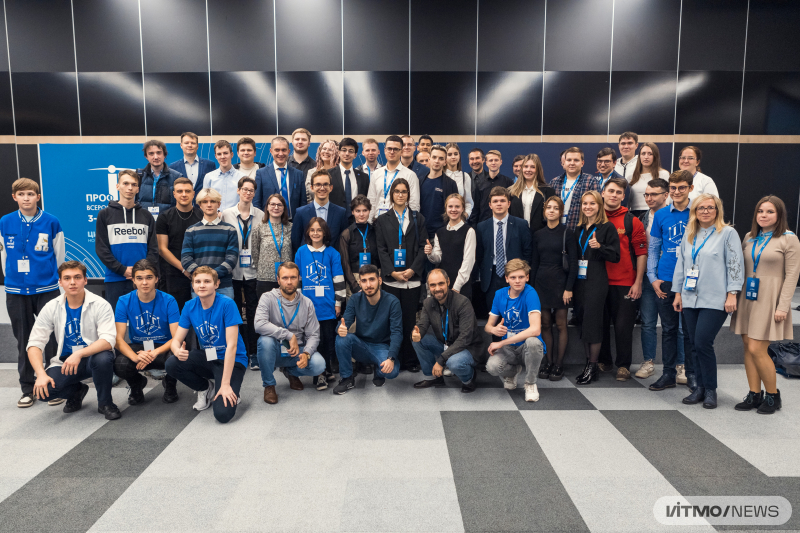Getting into IT
In several groups, the participants discussed their solutions to the current problems, and as a result were able to develop several initiatives which will now be reviewed by regional and state officials.
According to workshop participants, career advice should be provided through a number of topical events, including different activities, tours of companies, and extracurricular classes conducted by state-owned and private IT companies, as well as by senior students and teachers. All of this will help students learn about the kinds of jobs available on the market and the skills that are sought after by employers. Introducing IT specializations at school can be another way to approach the issue.
“Currently, there are three common specializations in high school: physics and mathematics, social sciences and humanities, and natural sciences. So, IT isn’t represented at many schools; however, introducing it can be problematic because there might not be enough interested students for a whole specialization. That’s where IT courses can come in handy,” says Dmitry Isaenko, a first-year PhD student at the Bonch-Bruevich Saint Petersburg State University of Telecommunications.
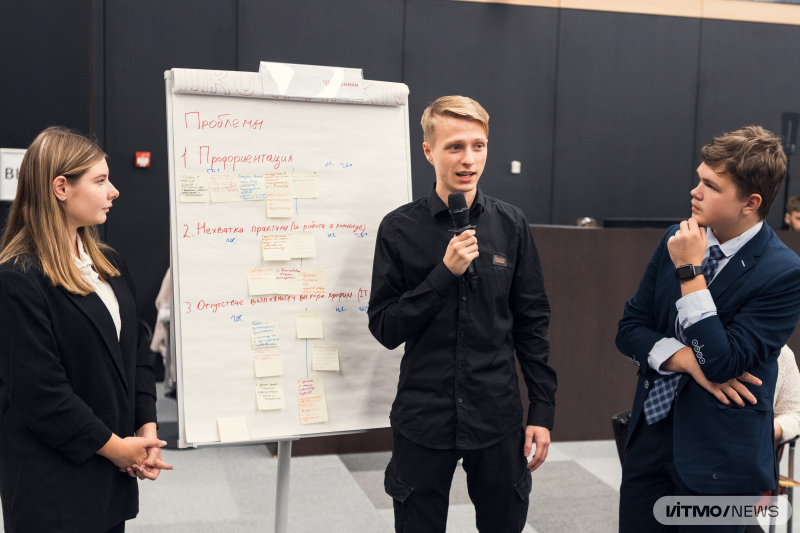
Dmitry Isaenko. Photo by Dmitry Grigoryev, ITMO.NEWS
At universities, too, IT professionals can share cutting-edge knowledge, talk about the changing trends in the industry, as well as offer interested students jobs at their companies. This solution will allow universities to keep in touch with businesses and train professionals who will truly be in demand.
“We have two main components of education. The first one is fundamental education, which stays relevant over time, and the second one is temporary trends in education, such as whichever programming languages or technologies are relevant at the time. We need to separate these two concepts and introduce a modular system to teach both. The educational program can consist in part of fundamental courses that will always be present, and in another – of changeable modules, where lecturers and educators will decide what exactly to teach,” says Mikhail Rybkin, a third-year student at ITMO’s Faculty of Infocommunication Technologies.
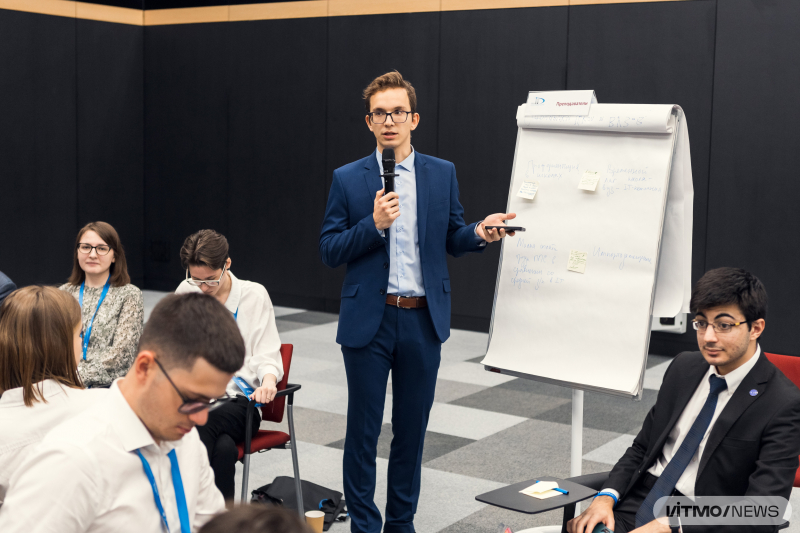
Mikhail Rybkin. Photo by Dmitry Grigoryev, ITMO.NEWS
What about practical skills?
Another important issue is the lack of relevant experience that matches the current reality – sometimes, students learn either from theoretical examples or from cases that were developed specifically for learning and thus might not occur on the market. That is why the workshop’s participants invited IT companies to provide real-life cases to students as part of project work. This way, students will get to develop their solutions in teams while getting to know their potential future employers.
“Employers have to be able to create positions fit for students – for instance, where they can spend 10 hours at the office per week for a small salary while the company gets a bonus from the government. This would be a wonderful way for students to gain experience and their employers to get a tax deduction as well as employees who can learn the ropes before joining the company full-time,” shares Roman Kuznetsov, a fourth-year Bachelor’s student at the Bonch-Bruevich Saint Petersburg State University of Telecommunications.
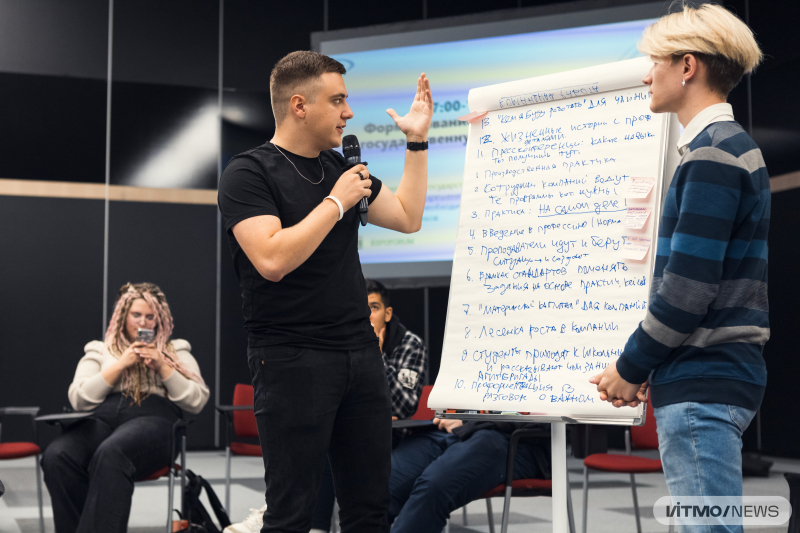
Roman Kuznetsov. Photo by Dmitry Grigoryev, ITMO.NEWS
At the same time, the workshop’s participants stated that employers will have to clearly outline the future career paths to students, including how soon they are to expect a raise in both their position and salary.
New challenges in IT
In order to address the current issues of the Russian IT market, the participants suggested developing open source solutions, which do not involve royalties and protect the newly developed technologies from being blocked. Another new challenge for the market is the migration of experts to other countries. According to Artem Arushanyan, a fourth-year student at ITMO’s Faculty of Secure Information Technologies, this outflow can be stopped with additional social guarantees provided by the state:
“There are ways to attract an employee, even without offering an exorbitant salary. For instance, it could be via free meals, housing, or better mortgage conditions. There are many options and they all depend on the demands of each individual,” shares Artem.
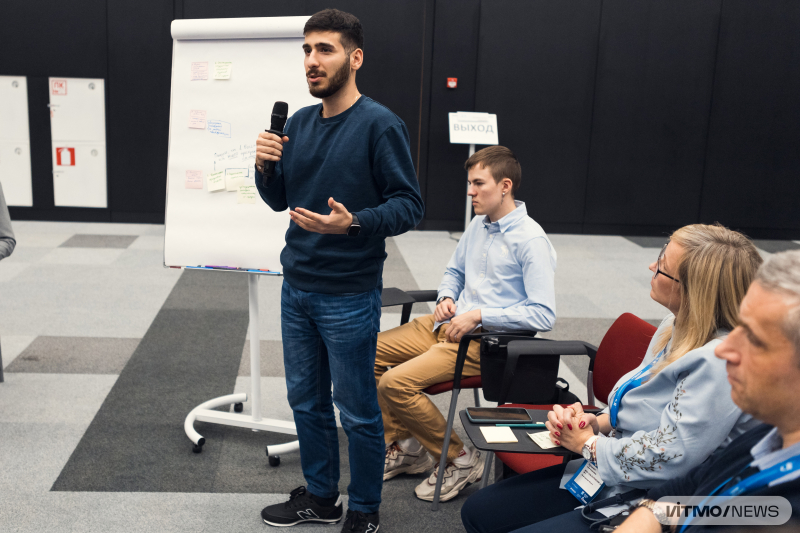
Artem Arushanyan. Photo by Dmitry Grigoryev, ITMO.NEWS
At the PROF-IT forum, which has been held annually since 2013, the representatives of federal and regional administration discuss informatization and e-government practices with IT specialists. The event also features a competition for regional and municipal informatization, with 345 projects from 53 Russian regions participating this year.
